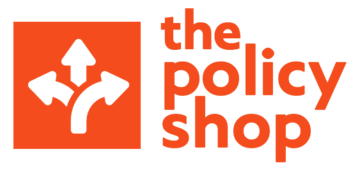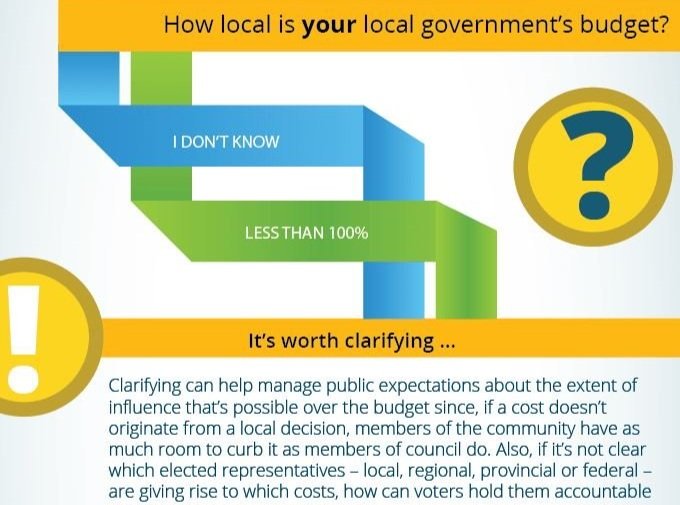how does policy relate to my job?
The clearest trend we see is that what’s written in finance policies is unrelated to what happens operationally, so it’s not necessarily a clear or constructive relationship.
Good news!
That’s a practice issue, not an issue with policy, per se.
-
Backwards-looking reporting and transactional work are must-do’s in any government finance department, planning isn’t.
The requirement for municipalities to have certain Council-approved policies in place sets low expectations about what mandatory and discretionary policy can do for local users.
There is rarely a resourced policy cycle that includes staff training inside municipalities.
This sets up a vicious cycle and self-fulfilling prophesy: low expectations beget low effort, the policy underperforms, and on and on.
Asset Management Policies were the first policies many municipalities contracted and the going rate was $5,000 - $15,000. That established an external value on something with mixed internal reviews, helping define a market for suppliers and increasing options for municipalities.
Following policy directives is optional for the Council that approves them.
-
Effectiveness is in the experience of the users. Beyond that, good policy is, in principle:
Built-for-purpose, (created to do something);
Evidence-based, (there is a reason to believe doing various things will get you that something);
Context-specific, (in a way that resonates for certain people, somewhere, at some time); and
Monitored for effect, (verify whether or not 2 & 3 delivered 1, refining as needed).
This step is where a lot of municipalities miss out.
-
Would you put your name behind your municipality’s finance policies?
If that gives you pause, keep pausing - whether or not better policy will fix the problem is also subjective.
A few cues it may be part of the solution include your assessment of:
Whether the principles running through your municipality’s key documents ring true to your community’s values;
Whether position-specific expectations are documented clearly enough to ease inter-departmental friction;
Whether the current Council sees its priorities articulated well enough in the existing policy framework for members to govern through policy, (and out of the weeds); and
Whether the sum total of policies, plans and strategies produces the results locals expect in terms they understand, keeps staff and elected officials in good standing with their neighbours and demonstrates the municipality’s trustworthiness to handle all of their money and ask for more next year.
benefits of improving it
Top Benefits of Effective Policy:
1. Peace of mind
You can exhale. There’s a system outside of you and your memory and it’ll still be there when you’re in your next role.Council approved grounds for saying ‘yes,’ ‘no’ and possibly making exceptions; it’s not up to the Treasurer to decide, nor does the answer depend on who’s asking the question.
2. Legacy-building
Your work outlasts you everywhere, and since policy can last a long time, it has the potential to speak for you long after you’re gone. Whether the structure put in place lasts another term of Council with minor tweaks or it falls apart when the author leaves influences how people are remembered.Written direction approved by law-makers represents rounds and rounds of discussion; it’s the product of hashing out heated issues for hours over years and unlike a plan or a report, a policy is never finished. The cycle is refine, amend, repeat. If it works well and you’re able to codify your compromises, that’s work that new staff aren’t saddled with, and setting them up to ‘hit the ground running’ solidifies your contribution beyond your tenure.
options for how to improve it
In-House vs. Outsourcing
Creating openings for evolutionary change is one way Finance can build municipal resilience.
Smaller, more frequent rule changes help keep the financial foundations vital and linked to current Council priorities.
Like any document, a policy document has zero intrinsic value. Its use is as a means to an end - whatever the end is and however effective policy instruments are in achieving it is subjective. So whether your next policy review involves consolidations, creating new directions, updating existing policy or starting to document procedures, whoever ‘holds the pen,’ the key is to take the reigns. It’s not a self-driving vehicle.
Here are some of the advantages of staff driving changes or directing them through a third party.
policy services
1. Policy Assessment
A performance appraisal for existing policies that may or may not be satisfying the job they are there to do.
2. New Policy Development
A translation of corporate goals into subject-specific objectives and position-specific responsibilities for achieving them.
articles
other business
- property tax
- own source revenue
- non-discretionary expense
- asset management
- discretionary activities
- tax bill
- externalities
- balanced budget
- own source revenue capacity
- development charges
- exception
- change-makers
- demonstrating value
- demand variability
- cost of growth
- cost of administration
- tax increases
- business as usual
- revenue shortfall
- reporting structure
Email this page with Outlook









How does the provincial design of municipal institutions play out in local communities, on Council, and to what end?
The article finds that local responses to weak design contribute to sub-optimal financial results.